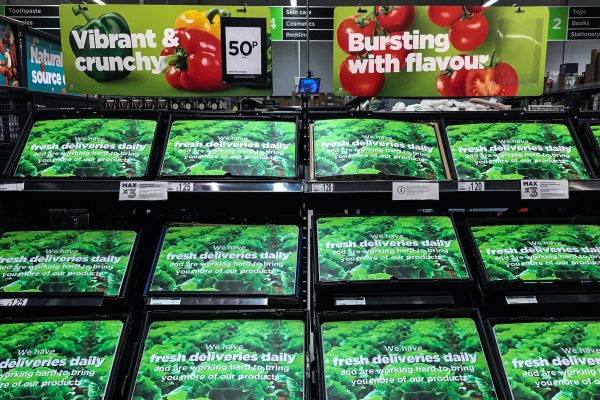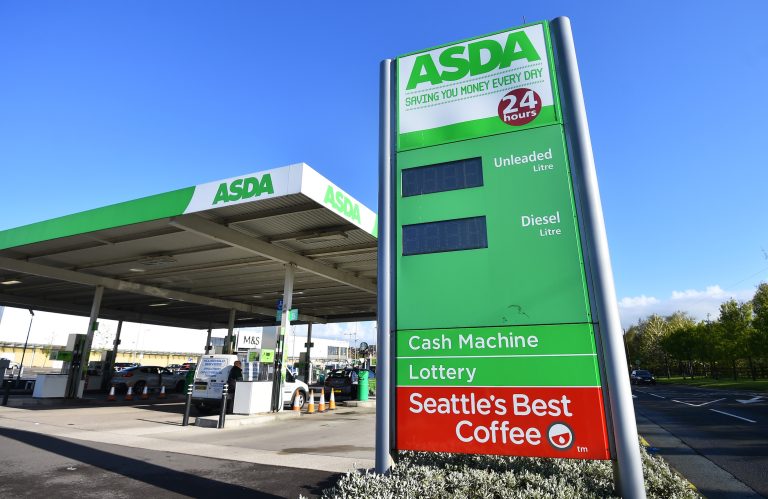A British government department, the Competition and Markets Authority (CMA), is looking into whether UK consumers are overpaying for food and fuel, recently announcing increased efforts to see if there is a lack of competition among supermarkets and petrol stations causing undue price hikes.
In its Monday, May 15 announcement, the CMA said it would be sitting down with senior management personnel of grocery stores for “formal interviews” in an attempt to “get to the heart of the issues.”
As reported by Sky News, an earlier CMA investigation had found that 2022 gas prices per liter in the UK were about 5 pence (around US$0.06) higher than in 2019, prior to the COVID-19 pandemic.
The CMA also observed broad increases in the price of grocery items, as well as significantly improved profit margins for supermarkets, which often sell both food and fuel. For example, higher diesel prices have persisted “longer than would be expected,” they said.
According to the government body, the pandemic and Russia’s invasion of Ukraine last years contributed to, but cannot fully explain the price increases.
Success
You are now signed up for our newsletter
Success
Check your email to complete sign up
“Higher pump prices cannot be attributed solely to factors outside the control of the retailers,” the CMA said, adding that low levels of competition were contributing to the problem.
Moreover, supermarkets have not been “sufficiently forthcoming with the evidence” on their business they provided to the CMA thus far.

Supermarkets generally remain the most economical places for drivers to fuel their vehicles, the CMA conceded, but the Authority nonetheless suspects — and hopes to remedy — possible competition failures.
This March, for instance, the CMA scrutinized a plan by British supermarket chain Asda to buy Co-op filling stations, listing out 13 areas of concern regarding the proposed merger.
The CMA expressed worry that the procurement would depress business competition at those stations, resulting in higher prices for consumers by limiting their options for where to buy fuel.
“There’s a risk that customers could face higher prices or worse services in a small number of areas where Asda would face insufficient competition in either groceries or fuel,” the CMA’s senior director of mergers, said at the time, as quoted March 14 by Sky News.
As regards the latest developments, Secretary of State for Energy Security and Net Zero, Grant Shapps, warned that he “won’t hesitate to take action” if “supermarket bosses … refuse to play ball” with the CMA.
“We won’t stand for motorists being treated like cash cows and ripped off at the pumps,” he said of the petrol and diesel price issues. “Fuel prices are falling so there is absolutely no excuse for retailers to not pass those savings on.”
Andrew Opie, director of food and sustainability at the British Retail Consortium (BRC), said according to Sky News that the British food market is already one of the most competitive in the world, and that “global price increases” are to blame for “high food inflation both in UK and across Europe.” Moreover, the CMA is aware of this, he said.
Opie disputed the view that retailers were increasing their profit margins at consumers’ expense, and that supermarkets nationwide “are doing all they can to keep food prices as low as possible.”













